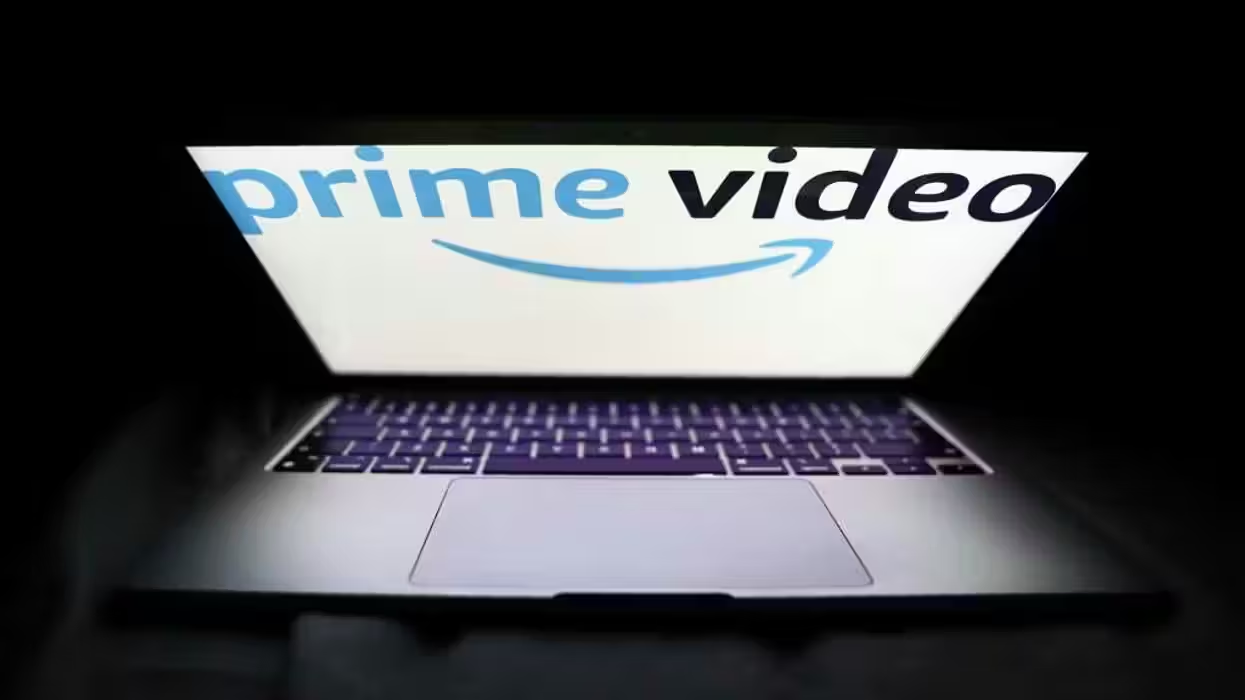
Photo by Jakub Porzycki/NurPhoto via Getty Images

The company that strong-arms small businesses now hopes to dominate entertainment by swallowing one of Hollywood’s biggest content libraries.
Last month, Warner Brothers Discovery put itself up for sale, triggering what could become a bidding war for one of America’s most iconic studios. Days later, reports emerged that Amazon plans to make a run at the company, immediately raising the stakes.
Consumers and regulators should treat every Big Tech bidder with skepticism, but Amazon’s interest demands special scrutiny. The world’s largest online retailer has a long record of distorting markets, crushing rivals, and cozying up to foreign adversaries — most notably China. Letting Amazon absorb yet another major media asset would tighten its grip on an entertainment industry already buckling under corporate consolidation.
Why would antitrust officials hand Amazon even more power in a sector already suffocating under concentration?
Amazon may be a household name, but it is not an America-first company. It bullies smaller retailers, copies their ideas, and funnels profits and supply-chain leverage through China. That behavior undermines the ingenuity and fair competition that built the U.S. economy.
Amazon already wields enormous influence over media. Last year, Prime Video topped U.S. streaming charts for the third straight year. Amazon controls a sprawling production studio, reinforced by its 2022 purchase of MGM. It holds high-dollar sports rights, including "Thursday Night Football" and an 11-year deal with the NBA.
Amazon doesn’t need Warner Brothers Discovery to survive. It wants the company to force more Americans into its digital universe, dominate an even larger share of the market, and use that dominance to trap users and raise prices. Buying competitors beats out-competing them — a classic monopolist playbook that burdens consumers and smothers innovation.
A Warner Brothers takeover would give Amazon exactly what it wants: a massive content library, the third-largest streaming platform, and a lineup of lucrative cable properties. With the deal sealed, Amazon would control more than a third of the streaming video on demand market — roughly 50% more than its nearest rival.
Why would antitrust officials hand Amazon even more power in a sector already suffocating under concentration? They likely won’t.
FTC Chairman Andrew Ferguson and the Justice Department’s antitrust chief, Gail Slater, have made clear that they intend to protect small businesses and consumers from predatory corporate behavior.
The Trump administration has backed those promises with action. Within nine months of taking office, the FTC forced Amazon to pay $2.5 million for trapping customers in Prime subscriptions. Ferguson’s vow to ensure that “Amazon never does this again” shows that this White House will not give repeat offenders a free pass.
RELATED: Stop feeding Big Tech and start feeding Americans again

The regulatory terrain also looks dramatically different from 2022, when Amazon bought MGM — an acquisition the Biden administration should have challenged and likely would challenge today. After that merger, the FTC rewrote its merger and acquisition guidelines to strengthen oversight. President Trump kept those rules and appears ready to use them.
Some critics claim Amazon earned goodwill with the administration by contributing to White House renovation projects. That accusation doesn’t survive contact with the facts. Candidate Trump warned about Amazon’s “huge antitrust problem” as early as 2016. The company has grown eightfold since then. Trump hasn’t softened.
And Amazon hardly functioned as a friend of the right. The company backed Joe Biden heavily in 2020, donating nearly $2.3 million to his campaign. Biden’s FTC did not treat Amazon kindly either, suing the company for “anticompetitive and unfair strategies to illegally maintain its monopoly power.” That case remains unresolved.
The sale of Warner Brothers Discovery will shape the future of American media — either by giving the company a fighting chance to innovate and compete, or by cementing Big Tech control over what Americans watch, read, and hear. If Amazon tries to tighten that grip, I expect the Trump administration to step in.
Let’s hope the sale doesn’t force the administration's hand.
Aiden Buzzetti